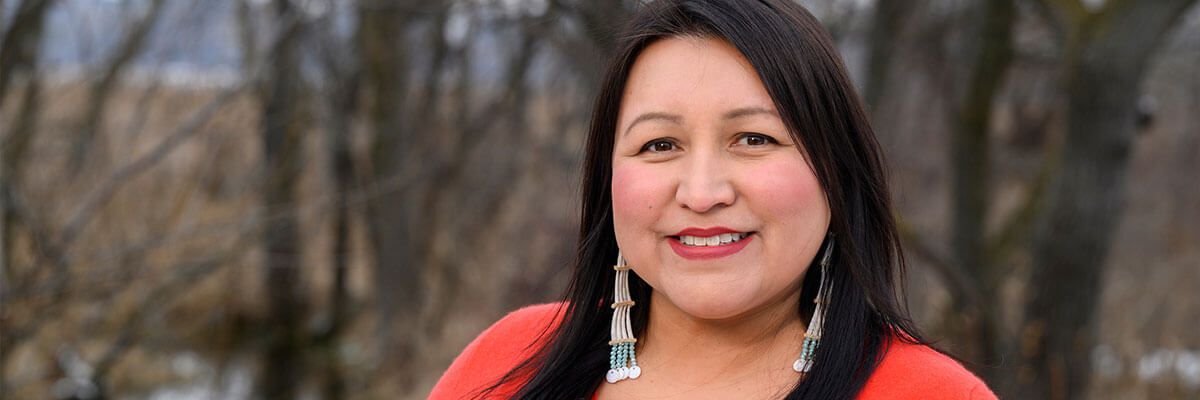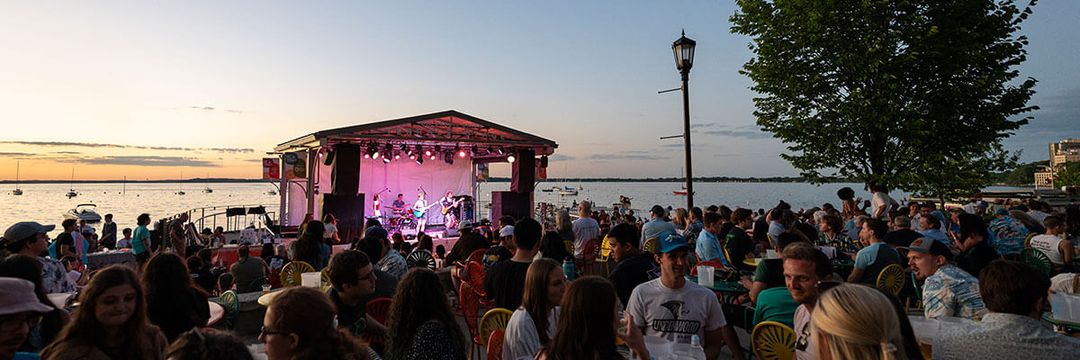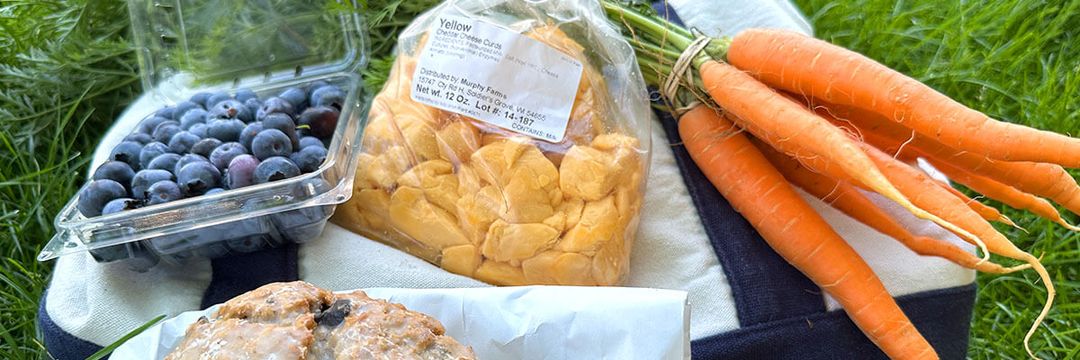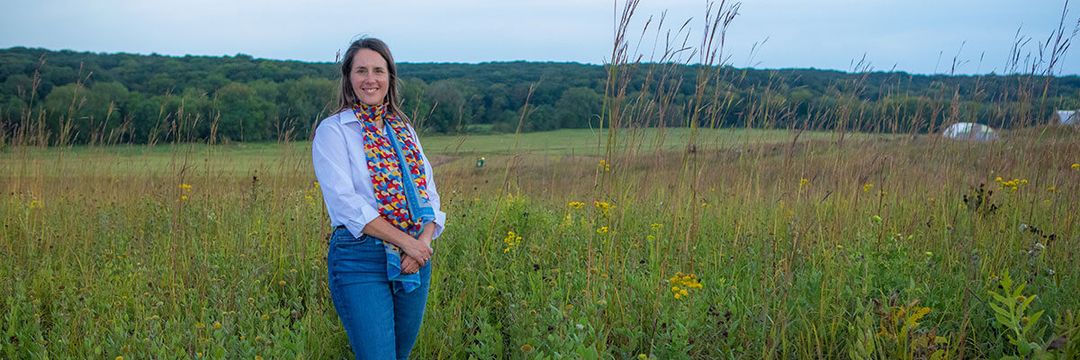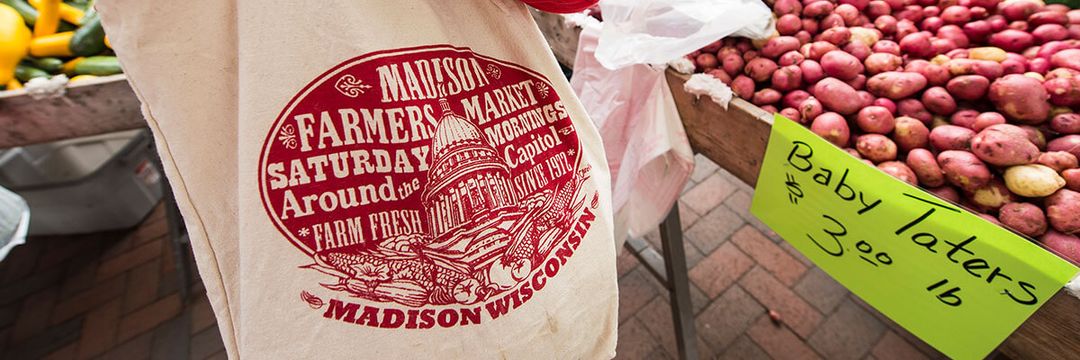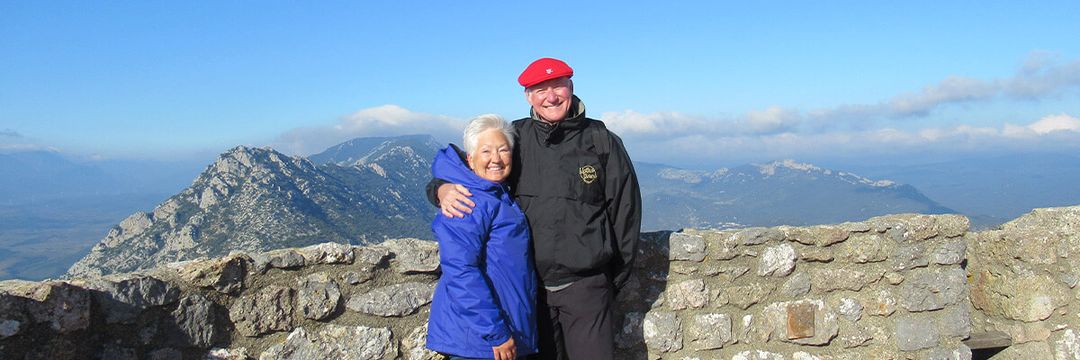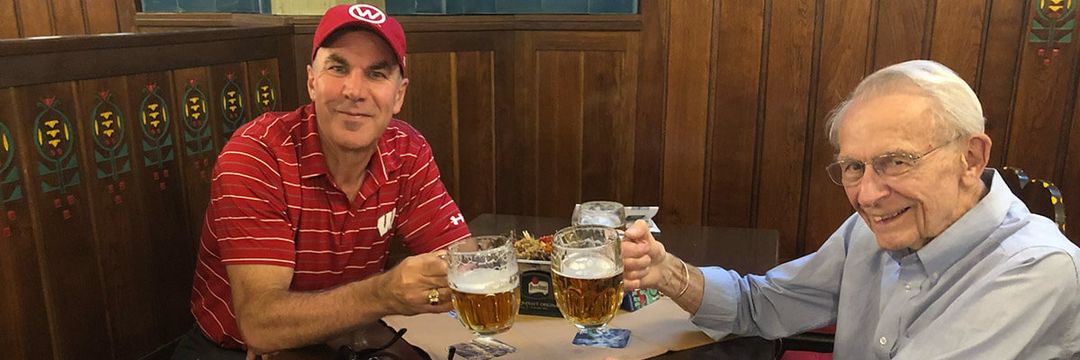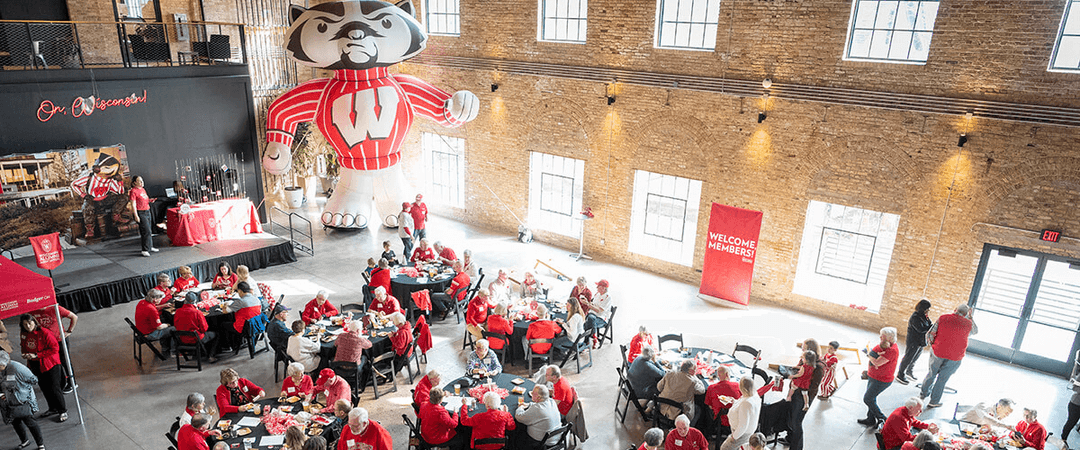UW–Madison is inherently connected to Wisconsin’s Indigenous communities through its occupation of ancestral land throughout the state. Over the last several years, the UW has committed to recognizing this history and prioritizing the university’s relationships with all of Wisconsin’s First Nations. In 2017, after consulting tribal leaders and campus partners, the UW developed a strategic plan to address relationship building, education pathways, research, and more. In 2019, the university formally established the Office of Tribal Relations, which was led by Aaron Bird Bear MS’10 until his retirement in 2022.
Carla Vigue began her tenure as the UW’s new director of tribal relations in January and quickly set to work expanding upon the robust foundation Bird Bear established. As director of tribal relations, she is responsible for cultivating partnerships with the 12 First Nations of Wisconsin and facilitating communication between them and UW–Madison. Her expertise in advocating for Native communities and her passion for building relationships among stakeholders make her a natural fit for the role.
Vigue began her career of public service in Washington, DC, as a lobbyist for the Oneida Nation, of which she is a member, and has spent decades working on behalf of Native interests. She’s previously held positions at the National Indian Gaming Association, the Wisconsin Department of Health Services, the Wisconsin Department of Veterans Affairs, and the National Council of Urban Indian Health, as well as in the office of former governor Jim Doyle ’67.
In her first few months at the UW, Vigue prioritized spending time with tribal leaders and members in order to better understand their positions and discuss their goals for the university. Those goals include making the UW affordable for students, integrating opportunities for Indigenous education into the curriculum, and making sure that current Native students are supported on campus academically, socially, and culturally.
The student experience is a priority for the tribes and for Vigue. She credits the Indigenous Student Center and programs like Advocates for Uplifting Native Traditions and Indigenous Engagement, a group of Indigenous staff members who provide mentorship and support, with being instrumental in retaining talented Native students. “There are always chances to not only bring together the Native community on campus but also to help share our culture and our history with others who are not from our Native communities,” says Vigue.
As the university celebrates its 175th anniversary, Vigue and the Office of Tribal Relations are continuing to find ways to celebrate the shared history between UW–Madison and Indigenous communities. One of these efforts, Our Shared Future, which began in 2019, seeks to embrace the full human history of Teejop, the land the Ho-Chunk have occupied for at least 12,000 years. “The Ho-Chunk elders are always willing to share with me what different words or ceremonies or history means to them,” says Vigue. “We are continuing to develop ways to remind and educate people about the Ho-Chunk history here.” So far, Our Shared Future initiatives have included heritage markers, the newly expanded First Nations Cultural Landscape Tour, and most recently, the installation of Ho-Chunk banners on Bascom Hall.
Heading into her second year, Vigue is continuing to focus on providing tangible results for the First Nations of Wisconsin and all Indigenous students on campus. “To really start to build a relationship with the tribes, there’s always got to be this level of trust,” says Vigue. “I feel really grateful that they’ve embraced me.”
